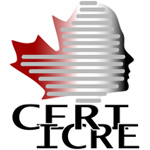On July 25, 2006, Her Excellency the Right Honourable Michaëlle
Jean, Governor General of Canada, announced 77 new appointments to the
Order of Canada. Dr. Frederick Andermann was named an Officer to the
order for his work in the field of health care.

Dr.
Andermann is a Professor in the Departments of Neurology and
Neurosurgery, and Pediatrics at McGill University. He is also the
Director of the Epilepsy Service and the Epilepsy Unit at the Montreal
Neurological Institute and Hospital. Dr. Andermann is one of the
world’s foremost leaders in the description, diagnosis and treatment of
epilepsy. Dr. Andermann has shown a remarkable ability to identify
syndromes and assemble multidisciplinary teams of researchers to
conduct further clinical investigations. The results of his inquiries
in such areas as cortical dysplasias, progressive myoclonic epilepsies,
epilepsy surgery and genetically determined disorders have been
published in six books and over 400 articles. His monographs on
alternating hemiplegia, Rasmussen’s Syndrome and migraine-epilepsy
syndromes have contributed significantly to understanding these
disorders and have led to further research in these areas. Much of
Dr. Andermann’s pioneering investigations into epilepsy have been in
collaboration with his wife and colleague, Dr. Eva Andermann. They are
best known for identifying in the 1970s what later came to be known as
Andermann’s syndrome, a debilitating and degenerative disease of the
nervous system concentrated in patients of the Saguenay and Charlevoix
regions of Quebec.
"The epilepsy world should
be proud to read the following announcement about one of its most
important figures," said Simon Shorvon, Information Officer for the
International League Against Epilepsy. "I am sure all of us offer Fred
Andremann our sincere congratulations and best wishes"
Dr.
Andermann has been a key figure in training neurologists and in the
development of epilepsy programs around the world. Through his vision
and leadership, he has expanded his sphere of expertise by gathering
around him a strong group of colleagues at the MNI that provide a rich
multidisciplinary environment. Dr. Andermann’s reputation and the
environment he has built at the Neuro with Dr. Eva Andermann, have
attracted fellows from around the world. He has trained fellows from
more than 15 countries, many of whom have gone on to distinguished
academic careers at Harvard University, University of Melbourne,
University College Hospitals in London and Tokyo Women’s Medical
College.
Dr. Andermann has been recognized
for his outstanding achievements with the 2003 Prix Wilder Penfield,
the 2000 William G. Lennox Award from the American Epilepsy Society,
the 1999 Penfield Award for Contribution in Outstanding Canadian
Epileptology from the Canadian League Against Epilepsy, and the 1995
Distinguished Clinical Investigator Award from the American Epilepsy
Society and Milken Foundation. The University of Chicago has created
The Fred Andermann and Pierre Gloor Award of Excellence in Clinical
Neuro-physiology to be bestowed on an individual for his or her
outstanding performance in clinical neurophysiology.
The
Montreal Neurological Institute (www.mni.mcgill.ca) is a McGill
University (www.mcgill.ca) research and teaching institute, dedicated
to the study of the nervous system and neurological diseases. Founded
in 1934 by the renowned Dr. Wilder Penfield, the MNI is one of the
world’s largest institutes of its kind. MNI researchers are world
leaders in cellular and molecular neuroscience, brain imaging,
cognitive neuroscience and the study and treatment of epilepsy,
multiple sclerosis and neuromuscular disorders.
The
MNI, with its clinical partner, the Montreal Neurological Hospital
(MNH), part of the McGill University Health Centre (www.muhc.ca),
continues to integrate research, patient care and training, and is
recognized as one of the premier neuroscience centres in the world.
Already well known for its McConnell Brain Imaging Centre, the MNI will
expand its brain imaging research in the next several years through a
$28 million award from the Canada Foundation for Innovation, made in
partnership with the government of Quebec. There will also be further
development of MNI initiatives in multiple sclerosis, optical imaging
and nano-neuroscience.
-30- |
